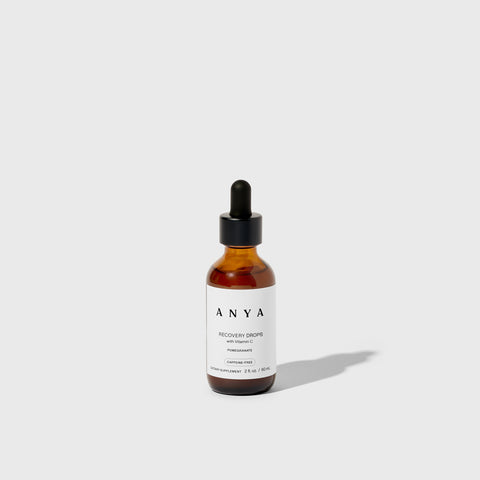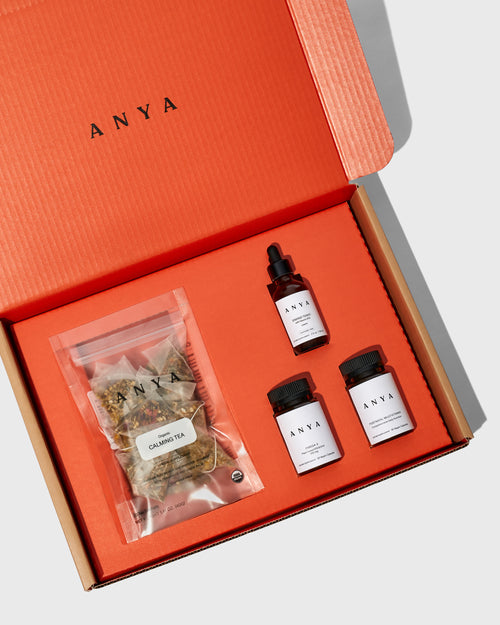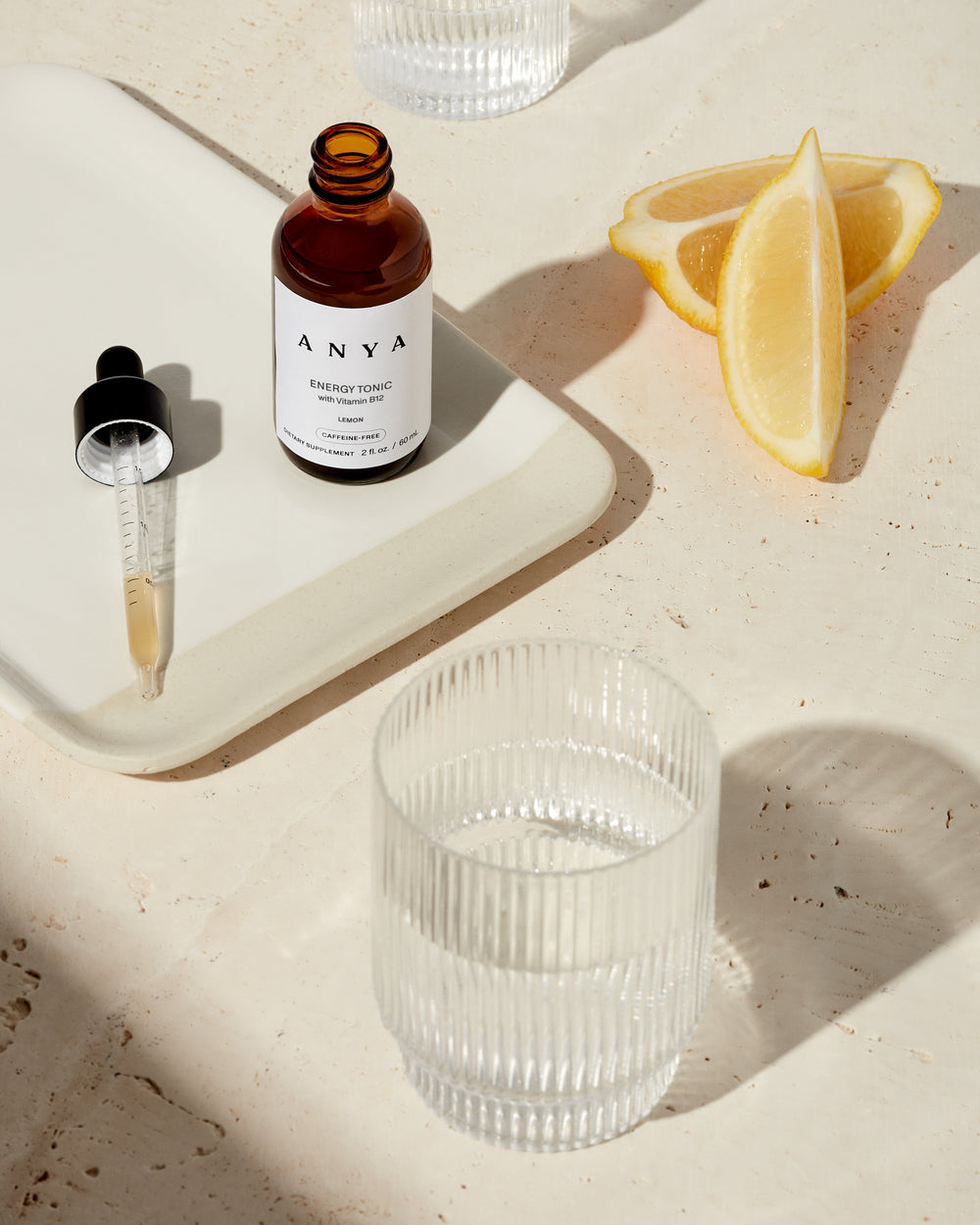Vitamins and minerals top the list of postpartum necessities, and the best way to get them is always from food. But the fourth trimester doesn’t typically leave a lot of time for counting chromium and tallying up B12 milligrams. That’s where tonics come in.
“Think of a tonic as a liquid vitamin or mineral,” says registered dietitian Julie Devinsky, who worked with Anya to create a line of nutritional tonics. “They’re very gentle on the stomach and easy [for the body] to absorb. [With traditional supplements,] your intestinal wall has to break down the lining of the capsule, but a tonic is a liquid multivitamin that goes straight into your body.”
Hydrating, delicious, and habit-forming (in a good way), nourishing tonics aren’t a novel concept: Devotees of traditional Chinese medicine and Ayurveda as well as communities in Korea, Nepal, and Guatemala have been mixing herbs, seaweed, and medicinal elements with water to supplement nutrition for centuries. But tonics are often overlooked in modern postpartum recovery, which is why we wanted to bring them back.
“To create a pair of tonics that give postpartum women what they need most—energy and recovery support—we looked at the needs of postpartum women based on what the average person is eating and really tried to fill in the gaps that usually aren’t covered in the diet, then emphasized nutrients that are especially important during that time,” says Devinsky. The result is a pair of bespoke blends designed to supplement a healthy diet and a daily postnatal multivitamin.
Lemon Energy Tonic with B12 and Chromium
“The star ingredients are B12 and chromium,” Devinsky says. “B vitamins are critical to energy metabolism [because they] help convert fat and protein into energy, and almost every cell in the body uses B12.” For breastfeeding mothers, B12 is an important part of the milk supply, which is why each serving of Anya Energy tonic has 100 percent of the recommended daily allowance. “The concentration of B12 in breast milk reflects maternal intake rather than stored B12,” so keeping those levels up is important for Mom’s energy and baby’s nutrition.
Experts recommend that breastfeeding women who don’t give up caffeine should consider limiting their intake—an ironic reality when sleep and overall energy are often in short supply. This is where chromium comes in. “Chromium enhances the action of insulin,” Devinsky says. “It can give you a little boost by bringing more energy into the cell.” Caffeine-free and chromium-rich, Energy tonic is a solid stand-in for morning coffee, safe to drink before nursing or pumping. “It’s also involved in the metabolism breakdown of protein, fats, and carbohydrates.”

Energy Tonic
Pomegranate Recovery Tonic with Vitamin C
“Anya's products are targeted to fill gaps instead of oversupplementing,” Devinsky says. “Recovery tonic is focused on reducing inflammation and producing collagen.” The body needs vitamin C to make collagen, and with 100 percent of the recommended daily value, the Anya Recovery tonic keeps levels topped up. “Collagen is the connective tissue that binds everything together,” Devinsky says. “Especially when you've just given birth, whether by vaginal birth or a C-section, it’s really important for healing.” Collagen is vitally important for everything from healthy joint function to skin elasticity, and vitamin C supports a strong immune system.
The Anya Recovery tonic also includes nettle leaf, hibiscus flower, and schisandra—a trio of botanicals that may reduce inflammation to create conditions for healing. “After giving birth, you're going through hormonal changes, physical changes, and emotional changes,” Devinsky says. “There are a lot of inflammatory markers that rise during this time, and this [supplement] is a gentle way to [potentially help] bring some of those things down.”

Recovery Tonic
HOW TO TAKE THEM
It couldn’t be easier: Just add a few droppers-full (two for Recovery; four for Energy) of tonic to eight ounces of water (hot or cold). You can also try the tonic in herbal tea, lactation tea, or warm water—incorporating tonics into your routine is an easy way to boost hydration.
As with any dietary supplement, consult your health care practitioner prior to use if you are pregnant, breastfeeding, or taking any medications.
Julie Devinsky is an adviser to Anya.






